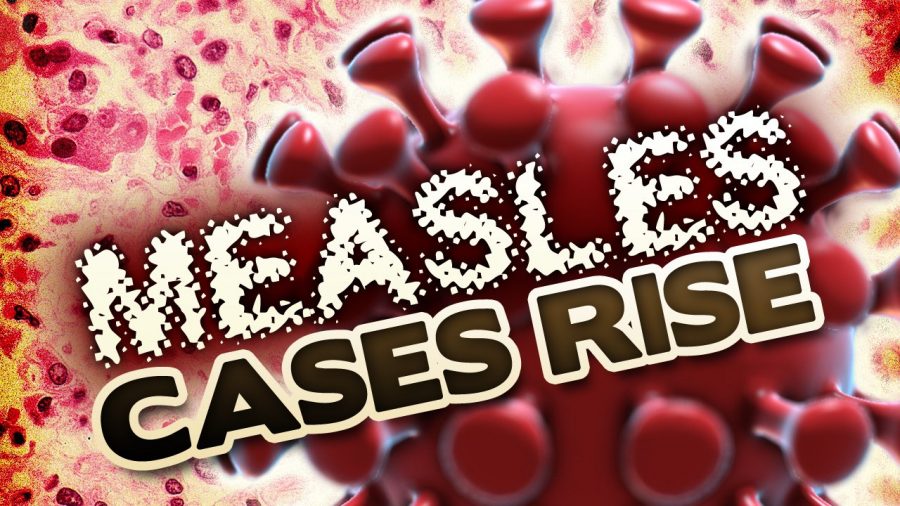Measles Virus Moves To Houston
February 12, 2019
The United States Government announced the 79th case of the measles virus in ten states on Friday, February 1. The first few cases of the highly contagious infection was reported in Washington and Oregon in late January, but on Monday, February 4, the infection moved to Harris County with three new cases.
Washington State epidemiologist Dr. Scott Lindquist said that the ongoing outbreak was started by someone who was visiting the U.S. from outside the country.
“There was a large group of kids that were exposed to a visitor from outside the country that developed measles,” Lindquist said. “Then what quickly happened is all those kids who were unimmunized actually went to public places like Ikea and Costco and the Portland Trail Blazers game and they then spread it to anyone in the population that was unimmunized.”
As of February 7, there have been three cases reported in Harris County, one in Galveston, and one in Montgomery County. According to the Chronicle, two of the children who contracted the virus had been recently vaccinated, but the Texas health department couldn’t confirm that report.
“It’s likely that [the children] were exposed to measles before the body could mount a full immune response,” Texas Department of State Health Services spokesman Chris Van Deusen said. “We know there’s a link between two of the Houston-area cases, and public health is investigating to determine whether the others are linked or whether they occurred independently.”
Darci Banas, the the head nurse at the clinic says there are a few things a student on campus can do to avoid getting sick and steps they can take to prevent the dangerous virus.
“Firstly, eat healthy and drink plenty of water. Next, exercise and get enough sleep. Practice good hand washing and do not smoke. And finally, maintain required/recommended immunizations and stay home when sick.”
The Center of Disease Control (CDC) says that vaccines are very important and everyone should get them. Common rumors that vaccines give children autism, and that they do not work are simply not true, but the CDC does say there is a chunk of Americans who can’t get vaccines due to other health problems.
“High risk individuals are those who have HIV/AIDS or another disease that affects the immune system, or your immune system is weakened because of cancer or other medical conditions, a transplant, or radiation or drug treatment,” The CDC says. “Pregnant women or nursing mothers.”
Individuals who have those problems may be at higher risk to contract the virus as their immune system may not have the antibodies necessary to fight it off. The infection has kept the campus clinic on high alert, but currently there is nothing to worry about.
“It has not impacted our clinic much at this time,” Banas said. “It has only heightened awareness of the signs and symptoms and our clinic immunization compliance remains at 100 percent.”


